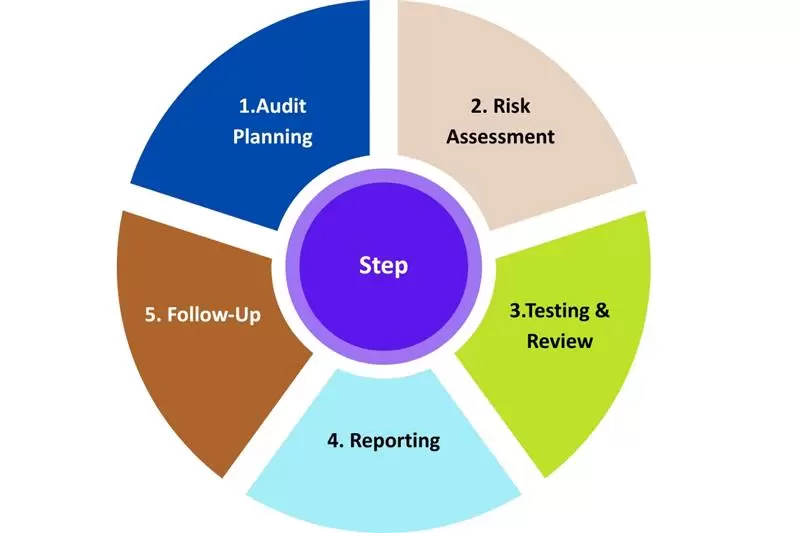In today’s fast-changing business environment, offshore audit services have become an essential partner for private limited companies seeking financial accuracy, compliance, and operational transparency. An internal audit is no longer just about checking numbers—it’s a strategic process that helps businesses strengthen their foundations and prevent potential risks before they occur.
What is an Internal Audit?
An internal audit is an independent evaluation of a company’s financial statements, internal processes, and risk management systems. For Pvt Ltd companies, this ensures that their operations align with legal standards and company policies.
It helps management identify inefficiencies, prevent fraud, and enhance the reliability of financial data ensuring the business remains compliant and well-prepared for external audits.
Audit is not about finding faults, it’s about finding solutions. – John Adair, Leadership Theorist
Why Internal Audits Matter for Pvt Ltd Companies
Internal audits are an independent evaluation of a company’s systems, financial statements, and internal controls. They help Pvt Ltd companies ensure that business activities are efficient, transparent, and compliant with government laws and company policies.
Key objectives include:
- Identifying errors or fraud early: Detect issues before they escalate into major financial or operational problems.
- Improving operational efficiency: Streamline processes and eliminate redundancies across departments.
- Ensuring regulatory compliance: Adhere to the Companies Act, GST, and other statutory regulations.
- Building stakeholder confidence: Verified data and transparent reporting enhance trust among investors and management.
- Strengthening risk management: Identify potential risks and implement strategies to mitigate them proactively.
- Supporting strategic decision-making: Provide actionable insights that help management make informed business choices.
Internal audits are not a one-time event; they form a continuous process that strengthens governance, improves decision-making, and ensures sustainable growth for Pvt Ltd companies.
Step-by-Step Process of Conducting an Internal Audit
The internal audit process is structured and methodical. It involves a series of steps that ensure every key function of the company is examined objectively.

Step-by-Step Breakdown
1. Audit Planning:
Define the objectives, timelines, and key departments to focus on. A clear plan ensures the audit is structured and efficient.
2. Risk Assessment:
Identify high-risk areas like cash handling, data management, or compliance gaps. Prioritizing risks helps auditors focus on what matters most.
3. Testing & Review:
Examine records, transactions, and internal controls to ensure accuracy. Many companies rely on professional auditing services to make this step thorough and reliable.
4. Reporting:
Present findings in a structured report with actionable recommendations. This helps management make informed decisions quickly and effectively.
5. Follow-Up:
Verify that corrective actions are implemented and processes are improved. Continuous follow-up ensures long-term efficiency and compliance.
Common Challenges During Internal Audits (and How to Overcome Them)
Every audit process comes with its own hurdles especially for growing Pvt Ltd companies that are managing multiple departments and complex financial data. Here are a few common ones and their practical solutions:
| Challenge | Impact | Recommended Solution |
| Incomplete Documentation | Causes delays and gaps in verification | Implement digital record-keeping and cloud accounting |
| Lack of Cooperation | Resistance from staff can slow audit progress | Promote awareness about audit importance |
| Data Inaccuracy | Leads to incorrect conclusions | Automate accounting entries and use verification tools |
| Ignored Recommendations | Fails to improve performance post-audit | Conduct quarterly follow-up reviews |
Addressing these proactively ensures a smoother, more effective audit cycle and fosters a culture of transparency across the organization.
Role of Auditors in Pvt Ltd Companies
Professional auditors offering auditing services play a vital role in:
- Designing audit plans based on company risk profiles.
- Reviewing accounting and reporting systems.
- Ensuring segregation of duties and accountability.
- Recommending improvements in internal controls.
By leveraging audit and accounting services, businesses can ensure their systems not only comply with laws but also align with global standards making them more attractive to investors and stakeholders.
Conclusion
A structured internal audit process ensures that private limited companies not only comply with laws but also achieve operational excellence. Partnering with professional firms that offer audit tax advisory services allows businesses to go beyond compliance toward smarter decision-making, financial integrity, and sustainable growth.
FAQs
Q1. How to audit a private limited company?
To audit a private limited company, auditors review financial statements, internal controls, and compliance with legal standards. The process includes planning, risk assessment, testing, reporting, and follow-up. This ensures transparency, accuracy, and alignment with statutory regulations.
Q2. What are the steps in the internal audit process?
The internal audit process involves five key steps — planning, risk assessment, testing and review, reporting, and follow-up. Each step ensures accuracy, efficiency, and compliance within the organization. This systematic approach helps companies identify issues early and strengthen internal controls.
Q3. How to internal audit checklist?
An internal audit checklist includes reviewing financial records, compliance documents, and operational procedures. It helps auditors ensure all key areas—like risk management, internal controls, and reporting are covered. A well-structured checklist ensures consistency and accuracy throughout the audit process.
